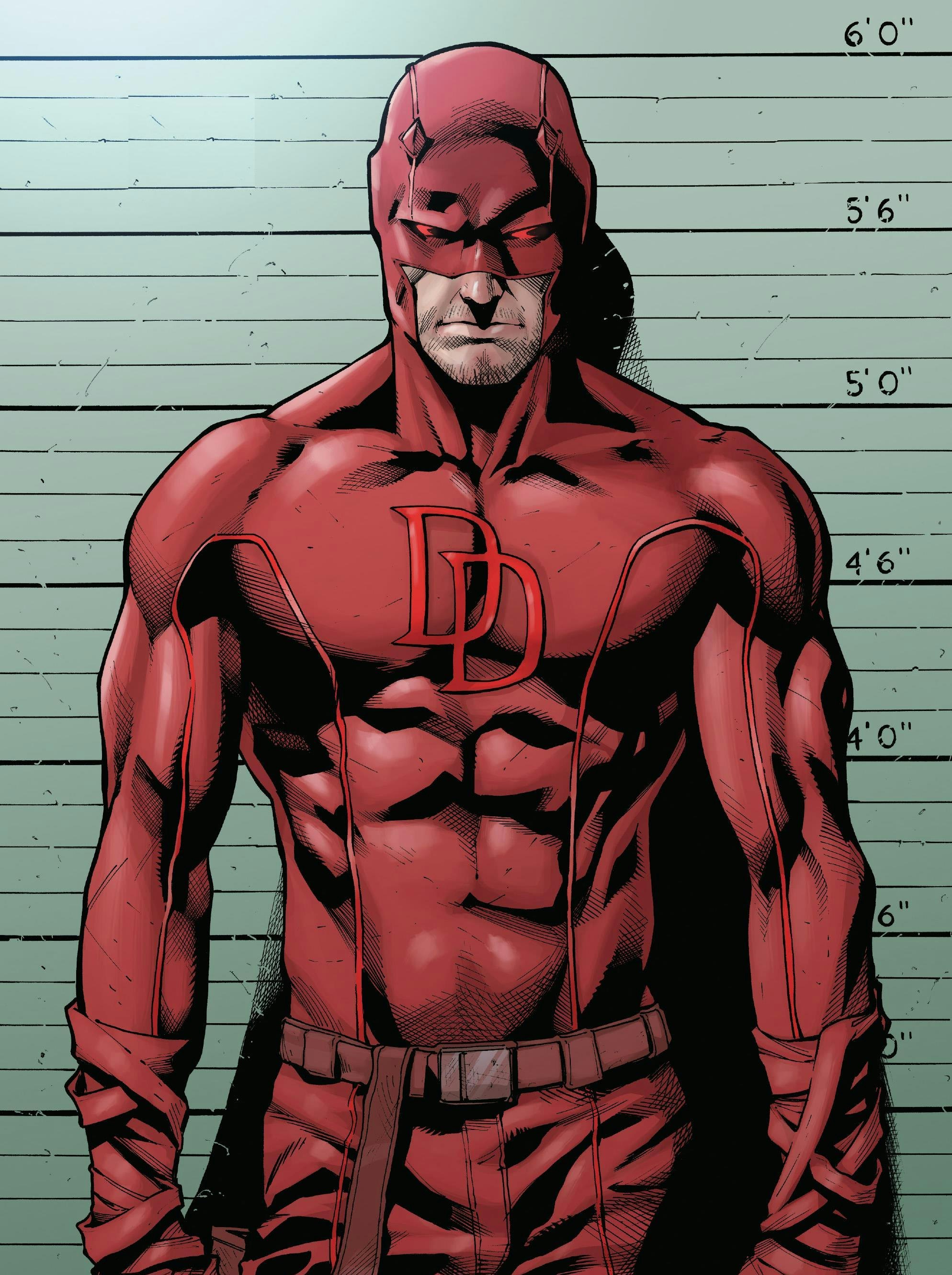
Daredevil has always been one of the most versatile characters in the Marvel Comics roster. Introduced as Stan Lee and Bill Everett’s “scarlet swashbuckler,” Matt Murdock has been everything from a wisecracking thrillseeker to a tortured avenger (and Avenger), even doing a stint as the demonically-possessed leader of a ninja cult — all while retaining a rich humanistic depth. As beloved as the 2015 Netflix series is, it only scratches the surface of Daredevil’s potential and comics canon.
The first three seasons focus mostly on the cornerstone elements introduced by Frank Miller in the mid-‘80s and ‘90s: Matt’s Catholicism, his rivalry with The Kingpin, and the ancient ninja order The Hand. But there’s one Daredevil story that cries out with cinematic potential: the current arc spilling out of the brain of Chip Zdarsky.
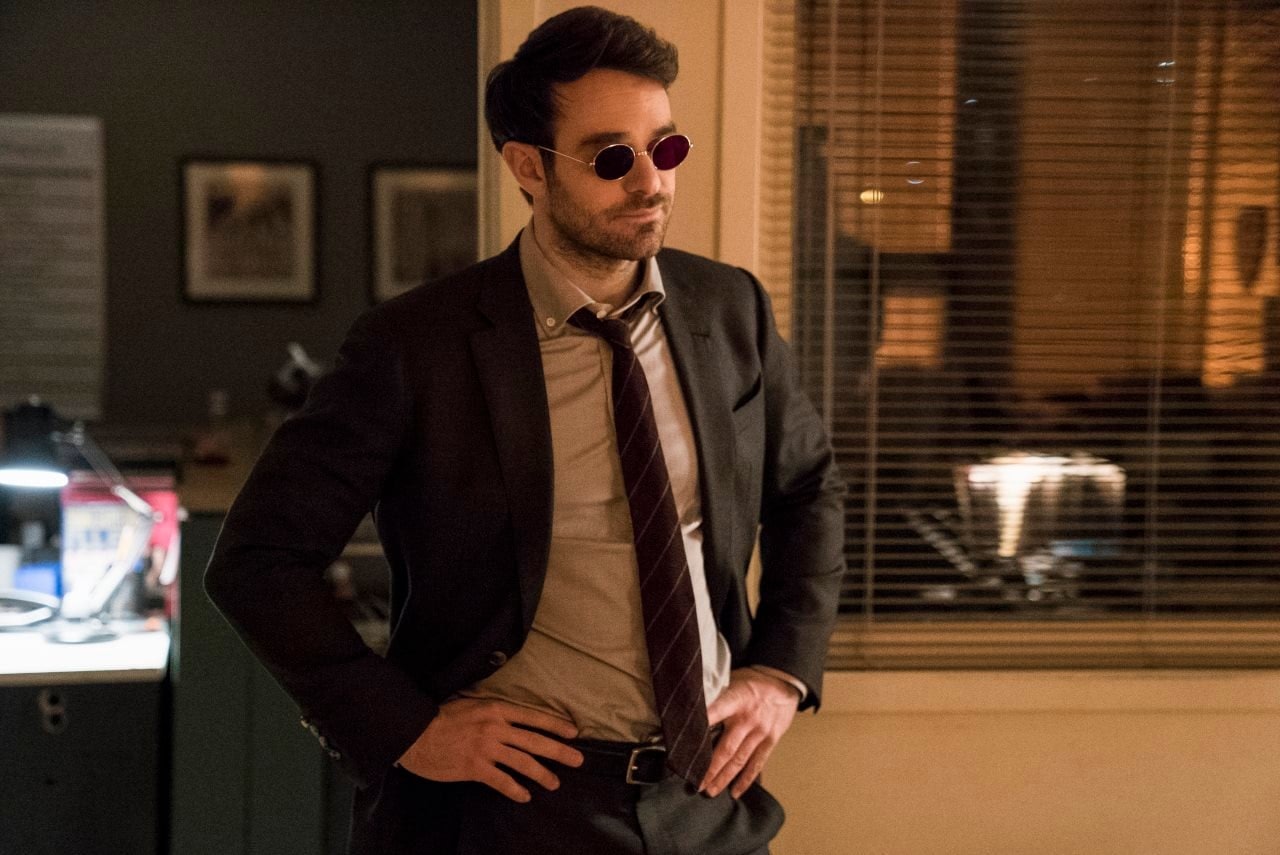
In the years after Frank Miller’s seminal contributions to the character, there have been dozens of impressive stories, all from creative teams that recognize Daredevil’s potential as a relatable reflection of the times and a lightning rod of creative adaptability. With the recent announcement of a new solo Disney+ series in the works, bringing back fan-favorite Charlie Cox as the Devil of Hell’s Kitchen, Marvel Studios is certainly turning to the comics for inspiration.
Zdarsky’s current run is easily the best direction for the new show.
Spiraling out of the fallout of Charles Soule’s 2019 storyline The Death of Daredevil, Zdarsky’s saga kicks off with Matt Murdock trying to return to his extracurricular activities after a car accident left him seriously injured. Physical and mental scars abound, and yet he ignores them in an arrogant pursuit of vengeance and self-actualization. It all culminates in a horrifying moment where Daredevil applies a bit too much force onto a reckless arsonist and accidentally kills him.
For a character whose perspective on the world has always been defined by his shaky relationship with the law, Zdarsky finally pushes Matt to a point of no return and cuts the safety net, isolating the character in a hell of guilt and self-destruction that forces him to question whether superheroes should have the impunity he and his friends have frequently been granted.
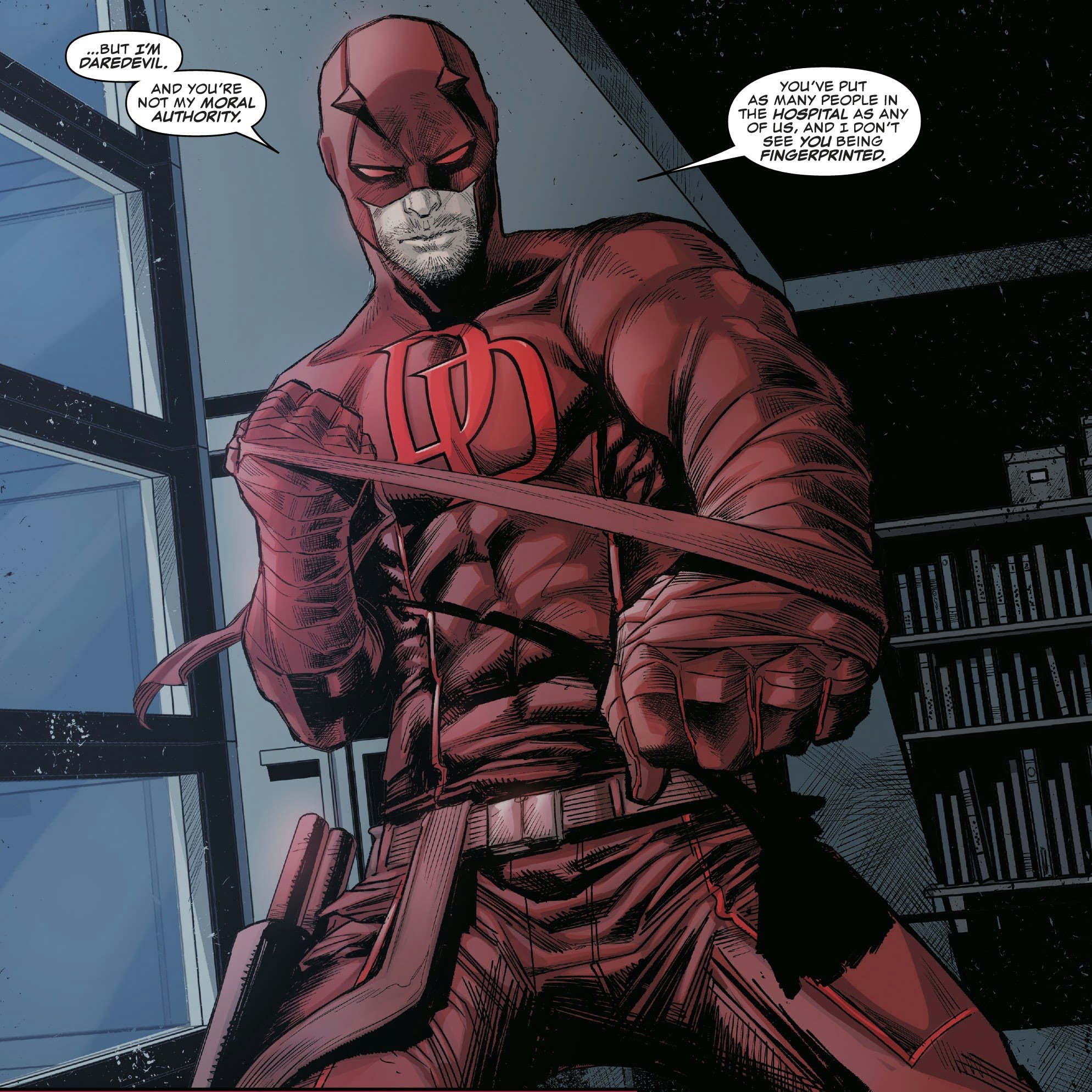
This is a plot thread that could really rejuvenate certain conversations tabled by the MCU, notably the consequences of Captain America: Civil War and its questioning of notions such as individualism and accountability.
Despite the film being one of the MCU’s most ideologically intriguing entries, successive installments have somewhat muddied the waters on how far-reaching the effects of the Sokovia Accords go, and the rifts created by the UN’s thorny legislation have evaporated in the face of the threat posed by Thanos. Even though Daredevil operates on relatively similar scales of justice, he’s always been on a tightrope that the Avengers never have, and there’s so much thematic potential in seeing how various characters might react to a masked vigilante committing manslaughter.
With blood on his hands, Matt’s interrogation of his own methods leads him to wider conclusions about the structures of criminal justice, realizing his own role as a cog in a system operated by powerful and morally bankrupt individuals. With all he’s been given, Daredevil is capable of doing significant good — not by brutalizing petty thugs and committing them to a hell designed to profit off of their suffering, but by going after the very folks who rig the game from behind the scenes.
A storyline like this wouldn’t be the first time a hero in the MCU deliberately chooses rehabilitation over retribution. Spider-Man: No Way Home destroys Peter Parker’s life in order to rebuild him with an even greater belief in the capacity for change, and this ideal could be the spark that ignites Matt Murdock and Peter Parker’s long-standing friendship on-screen.
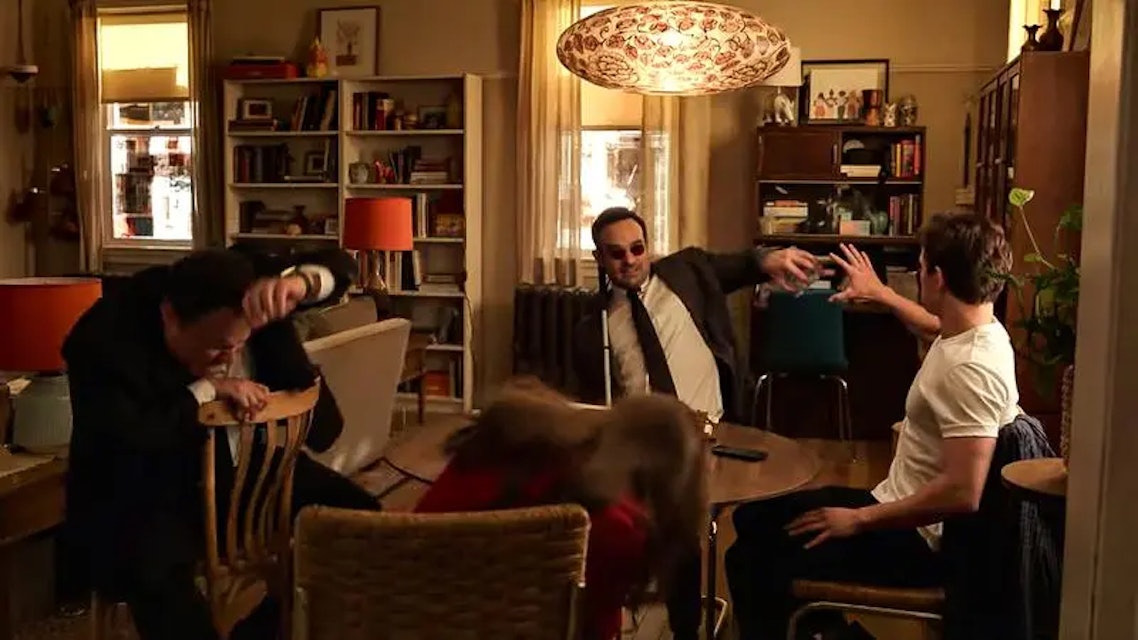
The benefits of adapting Zdarsky’s relaunch don’t just stop at a bold examination of the title character. Wilson Fisk is both indomitable and vulnerable here, weaponizing his power as the newly elected Mayor of New York City to make Daredevil and his friends squirm, all the while being manipulated by more nefarious forces. Their bitter rivalry culminates in the six-issue Devil’s Reign crossover event, in which Fisk uses all of his legislative and criminal might to crack down on superheroes operating out of NYC, even going so far as to deputize the Thunderbolts as militarized police with a revolving door of supervillains.
After his successful re-introduction in Hawkeye, rumors abound about what The Kingpin’s next move could be. There’s even evidence that Marvel Studios is actually building towards Mayor Fisk. Between the recent confirmation of a Thunderbolts movie and a trailer for She-Hulk hinting at just how tricky the legal discourse around superhumans is about to get (and confirming Daredevil’s role in that show), the MCU just might be ready for some real change. Who better to usher it in than a man of the people?
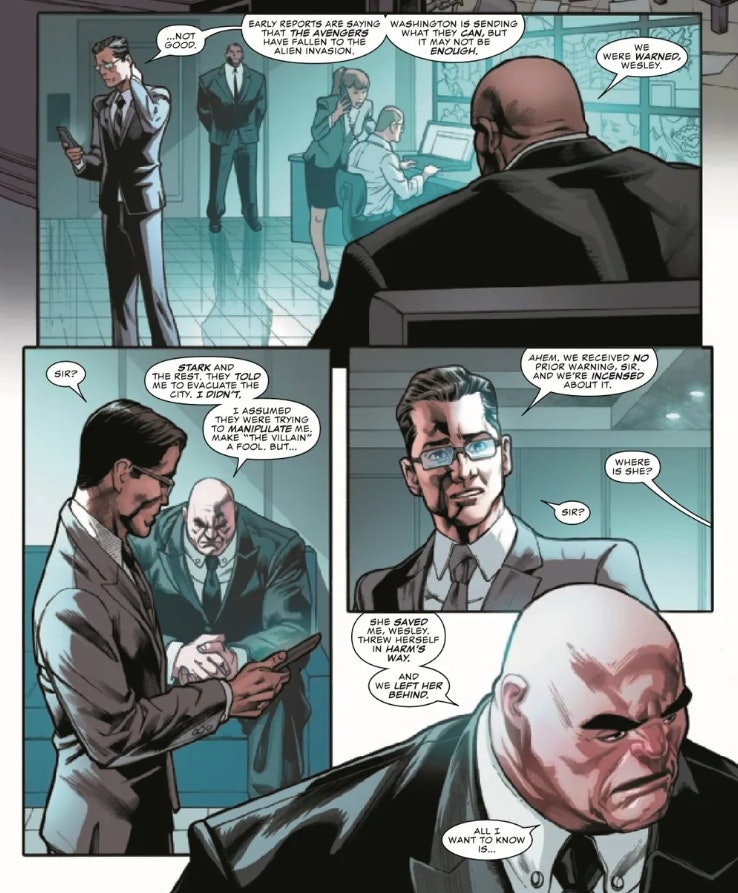
Of course, this is all wishful speculation. Daredevil’s narrative versatility means that there are dozens of storylines Marvel could mine for inspiration, and the beauty of Zdarsky’s run doesn’t lie in its potential for adaptation. By itself, it’s a moving examination of an all-too-human hero trying to make some extraordinary changes, not just within himself but within his community. It’s a contemporary classic, and it’s such a fresh reinvention of the Daredevil mythos that it almost feels like fate for it to be unfolding right as Charlie Cox makes his return.
In a clean 36 issues, Zdarsky ran Matt Murdock through the wringer, giving fans thrills, romance, spectacle, and all the Catholic-driven angst that has become synonymous with the character. In other words, it’s the perfect layup for Marvel Studios if Kevin Feige feels so inclined.







